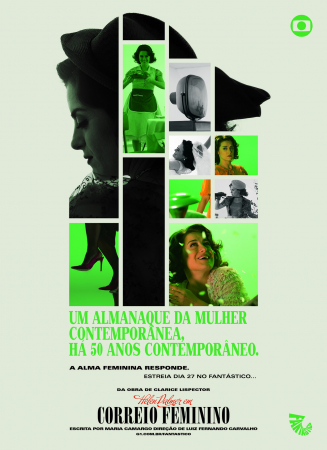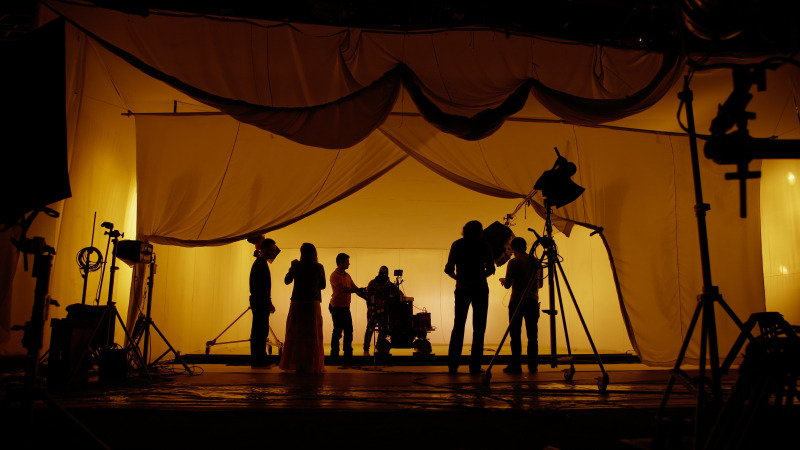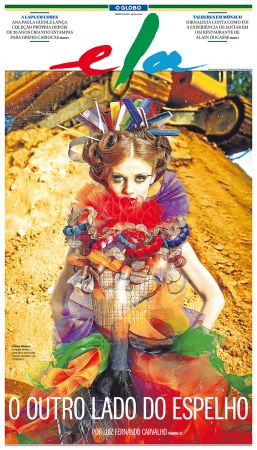Project
When I created this project, I didn’t know exactly what format it would have. Wearing a Clarice Lispector mask could be a great idea: and that would be Helen Palmer, which is in itself more than a pseudonym. In the mask, we noticed Clarice herself seeping through the cracks, in-between the lines. Actress Maria Fernanda Cândido has followed such course, and portrayed the route between Clarice Lispector and Helen Palmer in a quite delicate way. It is not about the voice, the voice-over for that sake, instead she played a dual game, hybrid in nature, implied by Clarice’s Helen Palmer.
Narrative
It was also interested in the fact that it was another dialog, by coming closer, creating a connecting with readers, as if it were the Facebook of those times. I understood that, amid the advices in the almanacs, Clarice addressed subjects which were relevant to young and older women. The structure revolved around three women: one post-teenager; a young woman, a little clumsy, comical; and a mature woman who could be in an existential crisis.
Art Direction
From an aesthetic point of view, the language of the project pays tribute to ads and fashion shoots of yore (1950s and 1960s). In the magazines, there was a full page in yellow with the model dressed in red, leaning on a blue and white car. A minimalism of colors and non-scenery, a classic of the best ad design of the time. While creating it, we get rid of the fat in scenographic elements, focusing the spatial dramaturgy on the colors and the costumes to allow the voice to come to the fore.
Timeless Issues
As far as almanacs are concerned, there are some passages and concepts that may have aged. On the other hand, our attention is drawn by their sentiment, verve, textual freedom, and especially the timeliness of certain feminine issues. We are invited to consider whether something has changed or not. We’ve had great advances, though some things may seem likewise carved in stone. The texts chosen point out to which remained very much the same in the female universe. Not for backwardness in the society, but for archetypal and human conditions. Loving and be loved. How to overcome the relationship crisis? What clothes to choose to go on the first date? No matter the social class of the women in the almanac, it doesn’t matter if she is really in, or if she is a graduate student. Those are questions from 1800, 1950, and they will remain the same in 2300. Questions about affection and human relations are timeless. This timelessness of the text in an ordinary almanac. We are modern, postmodern… really?
At this point I find Clarice Lispector’s reflection of “being dressed in her feeling” modern. She finishes it: “But if you want a bigger help: just use a yellow tape,” as in the first episode of the series. The yellow tape is to make you safer, and to have faith. Faith in love.








